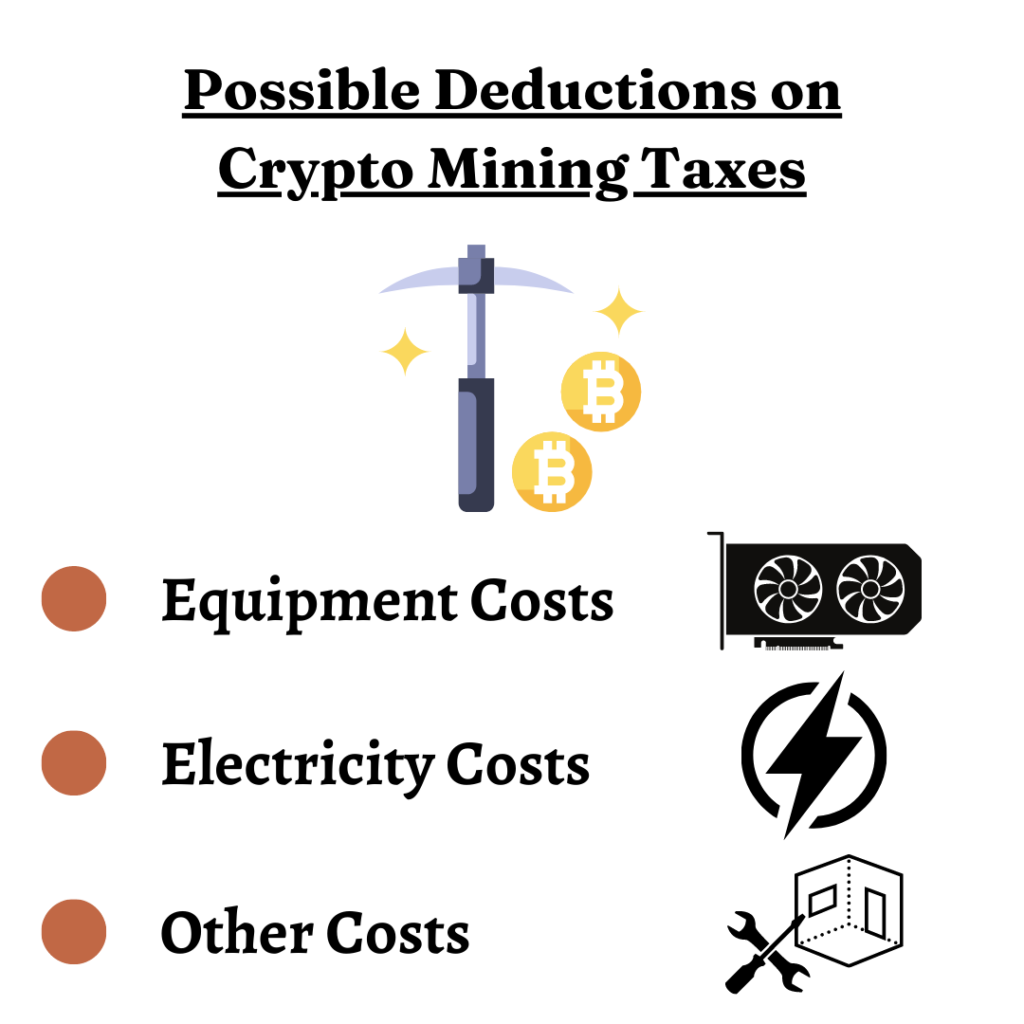Crypto Mining Taxes – The Complete Guide
In recent years, more and more people are getting aware of the importance of reporting taxes on their crypto transactions. There is a bounty of content and resources out there talking about the different tax implications of trading crypto. However, when it comes to crypto mining, such as Bitcoin, there isn’t really a lot out there explaining how exactly crypto mining taxes.
Although there are multiple tax implications to keep in mind as a miner, it isn’t that difficult to understand if you already know the basics of how crypto taxes work. In this article, we will discuss multiple tax implications for mining crypto and selling mined crypto. Plus, how to report mining taxes and possible deductions as a miner.
But before that, we must know what mining is and how they earn to understand its tax implications.
What is Mining and How Do Miners Earn?
Mining is one of the most crucial components for crypto to operate and function successfully. Essentially, a miner’s job is to create (or mint) new cryptocurrencies, like bitcoins, to enter the circulation and verify “blocks” of transactions by solving extremely complex mathematical problems, also known as hashing puzzles. And on successful completion of their tasks, miners are rewarded with crypto.
One of the major expenses in mining is the cost of equipment, such as GPU (Graphics Processing Unit), or ASIC (Application-Specific Integrated Circuit), and electricity. That’s why it’s important to know about the deductions allowed by the IRS to make up for all the costs.
In some cases, mining bitcoin requires more electricity than is used by some countries. That should give you an idea of how complex these hashing puzzles are and how much power it requires to solve them. That’s why it’s almost impossible for someone in 2021 to mine cryptocurrencies with a single computer by themselves. Most miners, nowadays, join mining pools or companies where groups of miners work together to increase their chances of earning rewards, which are then distributed equally among everyone. Those who are interested can go through companies like Luxor to start mining.
Crypto Mining Taxes

Taxes for mining cryptocurrencies are pretty simple and straightforward, as it is the same as income taxes rates. When you do your job as a miner and get rewarded for it with crypto, the fair market value of the coins you receive at that time would be considered your gross income. You’ll then have to pay ordinary income tax rates on your earnings, which range between 10-37%.
Although the tax laws on mining cryptocurrency are pretty straightforward, reporting them is a totally different story, and this is where it gets complicated. As a miner, you must have detailed records of the date and fair market value of the coins you receive as income because, unlike in traditional jobs, a miner doesn’t have an employer to issue a W-2 form to. Plus, most mining platforms don’t file a 1099 form to the IRS.
Nonetheless, just spending some extra time, and preserving all the records, as mentioned above, can save you so much time and mental peace when reporting your taxes. So, make sure you do that.
There are two ways you can report your income from mining crypto. One, as a hobby, in which case, you’ll report your mining income on Form 1040 Schedule 1 as “other income.” However, reporting your mining income as a hobby has its drawbacks – the most prominent of which is that you’ll not be eligible for deductions, which brings us to the second way of reporting mining income – as a business. When reporting your business income on Schedule C, you’ll be eligible for deductions. The only drawback? Pay self-employment taxes.
You can do this all by yourself or get help from a crypto tax software like Bitcoin.Tax.
Bitcoin.Tax simplifies the tax reporting process for you, so you don’t have to spend hours finding the right forms and data to calculate and pay your taxes.
Possible Deductions on Crypto Mining Taxes

As mentioned earlier, mining crypto requires advanced and expensive equipment and a lot of electricity. A few data reveals that expenses for crypto mining can take up as much as, if not more than 50% of the total mining revenue. This is huge, especially when it comes to paying taxes.
Luckily, the IRS allows you to deduct all ordinary and necessary expenses involved with running a business so that you can reduce your tax liability. In the context of mining crypto, these expenses may include equipment costs, electricity costs, repair costs, or the cost of renting a space, which is often needed to mine crypto. You can deduct all of this from your annual gross income to pay less tax.
Equipment Costs
Equipment is one of the most vital parts of mining. To increase your chances of solving the hashing puzzles faster with greater accuracy, you would need more advanced and expensive equipment. That’s why it’s important for a miner to deduct the equipment cost from their gross income. However, in some cases, miners may need to use the MARCS (Modified Accelerated Cost Recovery System) if the equipment cost exceeds $1 million.
Electricity Costs
Although the equipment required in mining makes up for a large portion of the expenses, it’s still nowhere near the electricity costs you have to pay every month. The IRS allows all businesses to deduct electricity costs from their ordinary income, but only if they can track it properly, and this is where it gets tricky.
In the context of mining, to properly track electricity cost, you must provide evidence of how much electricity is used for the sole purpose of mining. If you have a separate residence which you only use for mining purposes, this should be easy. However, if you’re mining from your own house, you might have to consider installing a separate meter to accurately track the electricity used for mining only.
Other Costs
Other than just equipment and electricity costs, there are other costs to mining crypto as well. The most common is repair costs. It’s totally possible for one of your mining equipment to get broken or corrupted. The IRS allows you to deduct repair costs during the year, but only if you keep appropriate receipts and records of repair as proof to verify the expenses. Similarly, the IRS also allows you to deduct the cost of rented space if you have one for mining. However, you might want to know what does and doesn’t qualify for rental expenses. Check out the official guidelines by the IRS on what qualifies for home office deductions.
Taxes on Selling Mined Crypto
So far, we have talked about the ordinary income tax that miners have to pay based on the fair market value of the coins they receive as rewards for completing their job. But what happens when they sell those coins?
Since crypto is identified as an asset by the IRS, selling the mined crypto will create a taxable event. Selling crypto is considered disposing of an asset that would incur a capital gain or loss. To calculate capital gains or losses, subtract the selling price of the coins by the cost basis, which is the value of the coin when it was minted (your ordinary income), and you’ll get your capital gain/loss.
You must report any capital gains on an IRS 8949 cryptocurrency tax form. The tax rates on capital gains depend on various other factors like holding period and income level.
Read our guide to crypto taxes to know more.
Final Thoughts
So, that’s all you need to know about taxes when it comes to mining crypto. If you take away anything from this article, make sure that it’s keeping detailed records of everything related to crypto and taxes, like receipts, bills, invoices, etc. Understanding crypto taxes is relatively easy compared to reporting them. You can save yourself so much time and headache by using crypto tax software like Bitcoin.Tax, or you can go through the process manually if you wish.